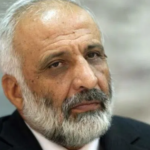The Afghan parliament on Wednesday rejected the next fiscal year’s budget, citing “serious problems.”
The exclusion of 1,131 provincial projects, the allocation of Afs13 billion ($166 million) for the emergency code (an emergency budgetary unit) and the allocation of Afs2 billion ($25.5 million) to the government’s Code 91 and 92–also emergency funds–were reasons for concern raised by lawmakers.
About a month ago, the budget plan was rejected because of its late submission to the Afghan parliament, and for financial violations.
The budget for the fiscal year 1400 (2021) that was submitted to the parliament by the government estimated a total of 452 billion Afs ($5.8 billion) for the next year.
Other lawmakers meanwhile alleged that a number of necessary amendments to the budget plan suggested by MPs to the government were not taken seriously by the finance ministry.
Code 91
On December 14, following criticism about the spending of the Code 91 budgetary unit’s funds by the government, the financial and budget committee of the parliament threatened to not allocate money for the emergency code funds in the next fiscal year’s budget plan.
The funds for Code 91 are allocated from the national budget every year.
A report published in early December by Etilaatroz newspaper states that over Afs2 billion ($25.9 million) from the government’s emergency fund known as Code 91 was spent for the personal expenses of over a dozen government officials in the solar year 1398 (March 2019 to March 2020).
The report shows that over Afs129 million ($1.6 million) has been spent on house rent, vehicle rent, daily expenses, bonuses for employees, apartment purchases, and travel expenses for 15 government officials and their staff.











